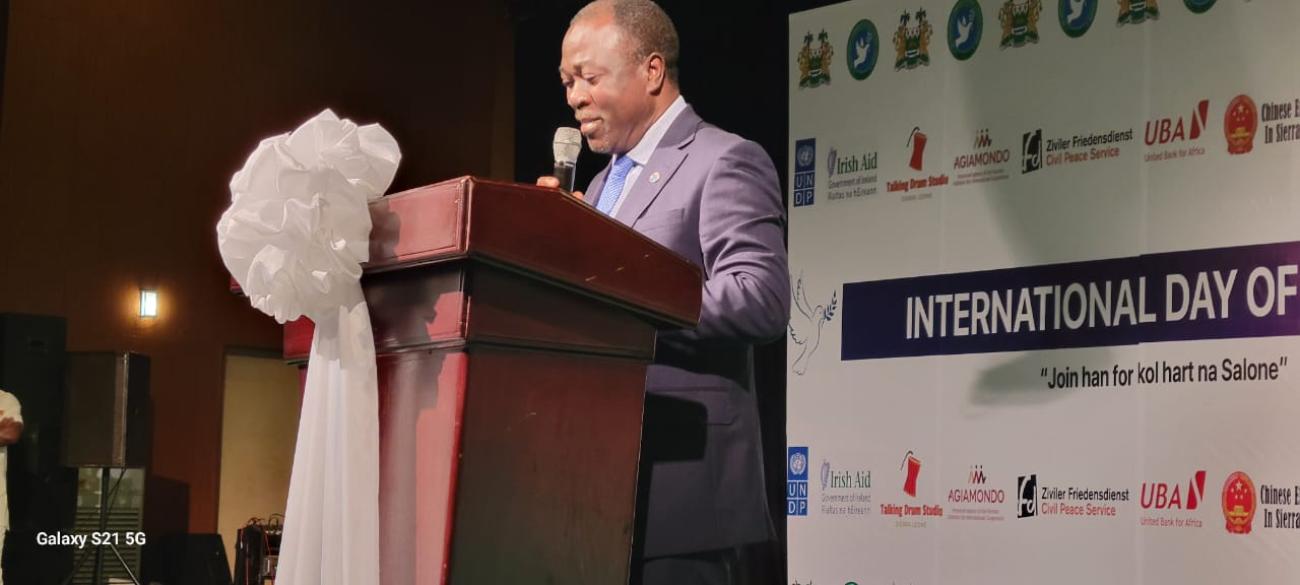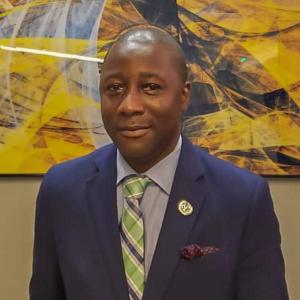Mr Babatunde Ahonsi, the UN Resident Coordinator in Sierra Leone, today called on the ruling and opposition parties to peacefully resolve their differences and jointly contribute to diffuse tensions in communities across the country, preaching cohesion and unity.
In his remarks at the International Day of Peace programme organized by the Independent Commission on Peace and National Cohesion (ICPNC) at the Bintumani Conference Centre in Freetown, Mr Ahonsi said they must explicitly and consistently counter divisive ethno-regional discourse and hate speech that has prevailed during the electoral period and beyond.
He commended President Julius Maada Bio for his stated commitment to decrease political tension and promote national cohesion and the opposition leaders for their commitment to maintaining peace in the country. “Political tensions are perhaps natural at a time of elections, but if they are not addressed quickly in the appropriate manner once the elections are over, they risk becoming an obstacle to national development and cohesion, creating an atmosphere of instability in the country,” said the Resident Coordinator.
Mr Ahonsi also welcomed the initiative of the Commonwealth Secretary-General to facilitate a process of dialogue between the two parties, with the support of ECOWAS, AU, and the ICPNC, adding, “As the parties prepare for the dialogue, I would like to express my hopes for a genuine and honest commitment by all stakeholders involved in this process to resolve the current political impasse without delay for the benefit of the citizens of Sierra Leone and the progress of the country's democratic process.”
He said that the call for action for peace is particularly relevant to Sierra Leone, as it is currently experiencing a political deadlock between the SLPP and the APC due to the 24 June elections.
“Political deadlocks and conflicts that descend into violence hamper peace and stability and, consequently, undermine development and social cohesion and, frequently, cause unnecessary suffering among people,” he insisted.
The Resident Coordinator said that the UN subscribes to any effort that can contribute to reducing violence and resolving disputes peacefully while promoting social inclusion, addressing the justice needs of people, and reducing polarisation and distrust, particularly in this crucial period of the country’s democracy.
As the country prepares to develop a new Medium-Term National Development Plan for the next five years and has already identified five big game changers for sustainable development, Mr Ahonsi called for strategies to address the root causes of inequality and marginalization to be explicitly incorporated within the planning and implementation under each game changer for effective violence prevention. He believes that “this will hugely contribute to sustaining peace and national cohesion and help move the country forward”.



